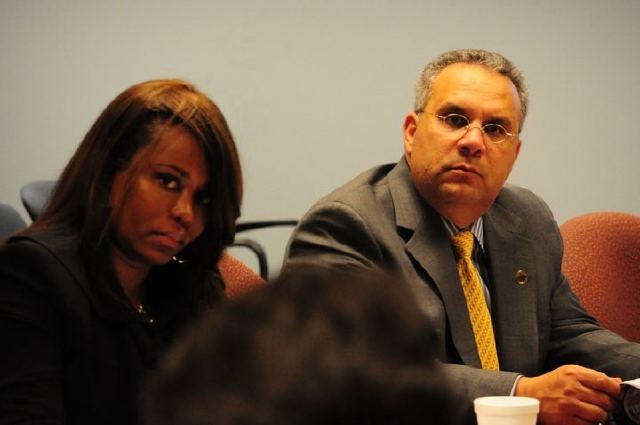
Not a month on the job, and new City of Philadelphia Chief Innovation Officer Adel Ebeid says the ‘major issues’ around city IT are apparent enough that he’s calling for a moratorium on any new technologies there for at least another month.
“I came to this conclusion after it was clear to me that the organization does not have a solid understanding of priorities, projects in the pipeline, resources needed to support new services, and the strategy to move forward,” Ebeid said in an internal email sent to select city IT staff, deputy mayors and commissioners and obtained by Technically Philly through an anonymous source. In it, Ebeid references his fear of the perception this might cause, that the “new guy is going to slow us down.”
That the city infrastructure is dated enough to warrant security and upkeep concerns is not news. That a top IT head wants to do something about it isn’t either. The news here is that Ebeid is sounding the alarm far sooner into his tenure than expected because, as he says, building on the systems that are today in “an unstructured fashion would put us one step closer to a perfect storm.”
It’s worth pointing out that Technically Philly is told that the city often puts a lock down on many systems, processes and IT infrastructure right before elections and during some holiday seasons, to reduce the likelihood that a major failure would be made worse by politics or short staff.
In short, this move isn’t unheard of, though the timing is close to it. See the entire internal email below.
“Colleagues,
When I came on board two weeks ago, I promised to come in with an open mind and a promise to make my own assessment over the first 30 – 60 days on the job. After two weeks, it is apparent to me that there are major issues that need to be addressed in the infrastructure area. While I do not have a complete picture of all the issues, I feel that it is necessary to put a 30 – 45 day moratorium on introducing any new technology that may impact our infrastructure. There are many reasons for taking this step, but they primarily revolve around demand management and our collective capacity to deliver/execute. We will continue to honor commitments made to projects previously approved by IT, especially where resources have already been allocated.
I came to this conclusion after it was clear to me that the organization does not have a solid understanding of priorities, projects in the pipeline, resources needed to support new services, and the strategy to move forward. In addition to this, several key positions in the Infrastructure Services group are vacant, and there are additional unfilled positions. The organization does not have a technology architect to orchestrate engineering decisions and facilitate problem resolution. Over the next few weeks we will focus on an in-depth evaluation, staffing issues, and developing a strategic road map. Because of the interdependencies and the complexity of these issues, I want to make sure we have a solid foundation and plan to move forward. The success of doing infrastructure right is critical for supplying the services needed to support your business needs.
Over the past two weeks, I’ve has the pleasure of meeting many of our dedicated staff in the Infrastructure Services unit who are struggling to juggle competing priorities and responding to client needs in a timely fashion. Their dedication leaves me with a great sense of optimism that things can and will work but not until we establish some basic management processes to prioritize the work stream, improve the hand-off across IT units, and establish honest and frequent communications.
I was concerned about making a decision like this at this stage of my assessment and how it might be perceived – new guy is going to slow us down. However, continuing to build on top of a fragile infrastructure that is growing in an unstructured fashion would put us one step closer to a perfect storm. I am more than willing to discuss with anyone the implications this action will have on your department’s projects or plans, and will work with you to address your concerns. As promised, I’m being as candid as I can be with all of you in the hopes that I can gain your support and patience as we rebuild your IT organization.
Please feel free to share this e-mail with your direct reports and if you have any follow-up questions, you may call me…
Adel”
City of Philadelphia’s ‘fragile infrastructure’ causes 30 to 45 day moratorium on new technology, says CIO Adel Ebeid







